NHS waits: More people feeling forced into private healthcare
- Published
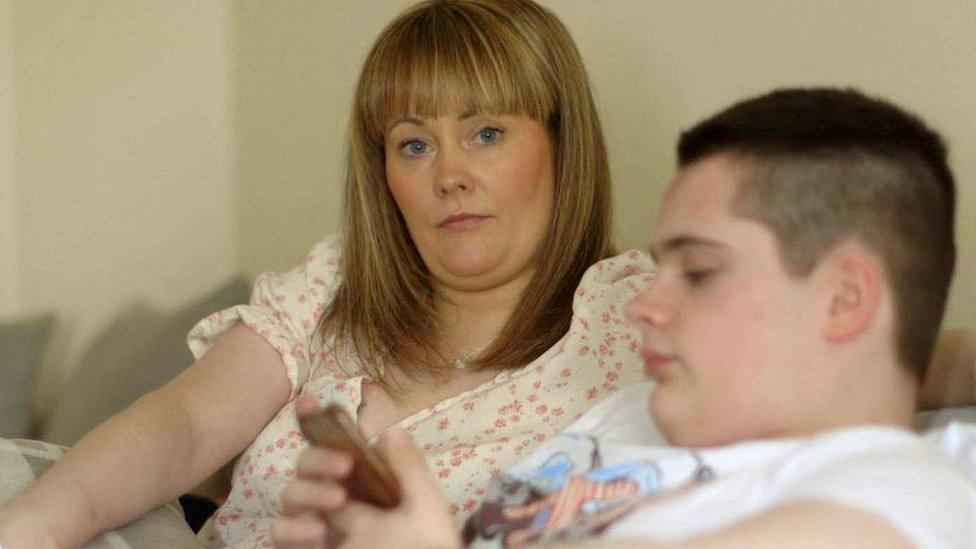
Hayden's mum Shauna raised enough money to get her son's surgery carried out in Turkey
"To be put in a position where you're basically begging off people, it's infuriating."
Last October, 12-year-old Hayden Kildea was diagnosed with severe scoliosis, a condition where the spine twists and curves to the side. Left untreated, it can become a dangerous and life-limiting condition.
The Kildeas, who live in Strabane, Northern Ireland, say they were told Hayden would need urgent surgery - but that because of the backlog caused by the pandemic, he would have to wait more than two years.
His mum Shauna found a clinic in Turkey that was able to carry out the operation immediately, but it would cost £50,000 - money the family didn't have.
So in the summer, they turned to crowdfunding and campaigning to raise the money.
She says: "It's really, really frustrating that we're in our own country and we can't get Hayden the surgery he needs."
Staff at a north London GP surgery spoke of "overwhelming" pressure
Millions of people across the UK are currently on NHS waiting lists - in Northern Ireland there are over 465,000 people, while in England, 5.6m are queuing for treatment.
Data shared with BBC Panorama shows that on average, waiting lists have grown by 50% in the most deprived parts of England since the start of the pandemic, compared with nearly 35% in the most affluent areas.
The research, conducted by the King's Fund, also shows that people on waiting lists in poorer areas are nearly twice as likely as those in wealthier areas to wait more than one year for treatment.
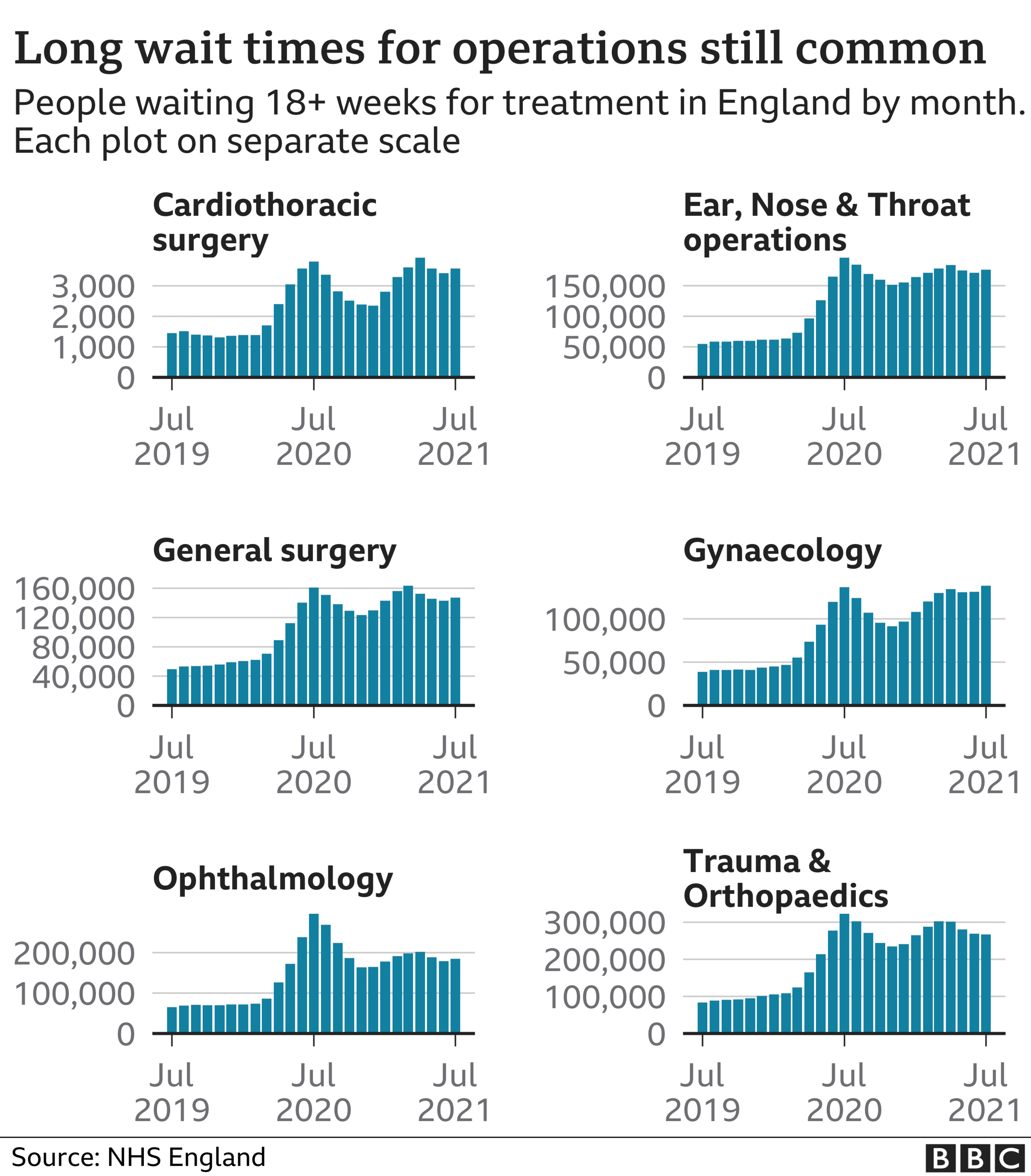

The data looks at waiting lists from April 2020 to July 2021 (the latest available data) and includes planned hospital treatments such as knee and hip replacements, cataract surgery and other common procedures.
Hayden Kildea's family reached their target. He has now had the operation in Turkey and is recovering back at home.
The Health and Social Care Board in Northern Ireland said patient demand continued "to exceed capacity across a range of specialties". It added: "As a result, even before the pandemic, the number of people waiting longer than the target waiting times was increasing."
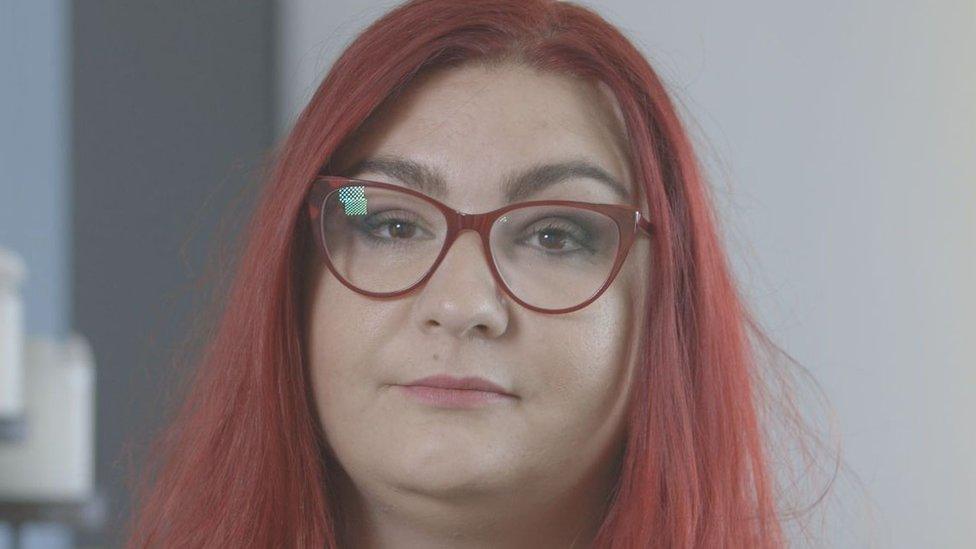
Sofia felt she couldn't wait for an NHS procedure
Sofia Jones, 36, has endometriosis - a gynaecological condition that leads to severe pelvic pain. Some days she could barely walk, having to stay in bed all day.
Sofia, who lives near Dundee, says she was told she'd have to wait two years for an NHS operation. But that felt too long to wait, so she and her partner decided to take out a £7,000 loan to pay to have the surgery in a private hospital.
'It was a really tough decision to go private," she says, "because we were having to put ourselves into debt. And that's a lot of money. But you have to have some quality of life."
A Scottish government spokesman said: "We're sorry the unprecedented impact of the pandemic has lengthened waiting times for some patients. The pandemic has been the most significant challenge the NHS has faced in its 73-year history, and as in many health care systems across the world, the unavoidable pausing of non-urgent elective procedures has resulted in some delays."
According to Anita Charlesworth, chief economist at the Health Foundation think tank: "The big worry about long waits leading people to have to go private is that it will increase inequalities, but also that many people will be forced to make awful trade-offs over their finances in order to be able to get access to the care that they need when they need it.
"And that goes against every grain of why we set up the health service," she said.


Brenda Pugh, 61, from Petersfield in Hampshire, had to give up work in a law firm in 2019 after being diagnosed with arthritis. She was unable to work due to the pain caused by her arthritis which was first diagnosed five years ago.
As the pandemic began, she was told she needed a double hip replacement and now has to use crutches. When she moves she says it's like "walking on jagged glass".
The pain is so severe she has written to her consultant, begging him for the operation. She says: "I can't carry on like this. My life just isn't worth living."
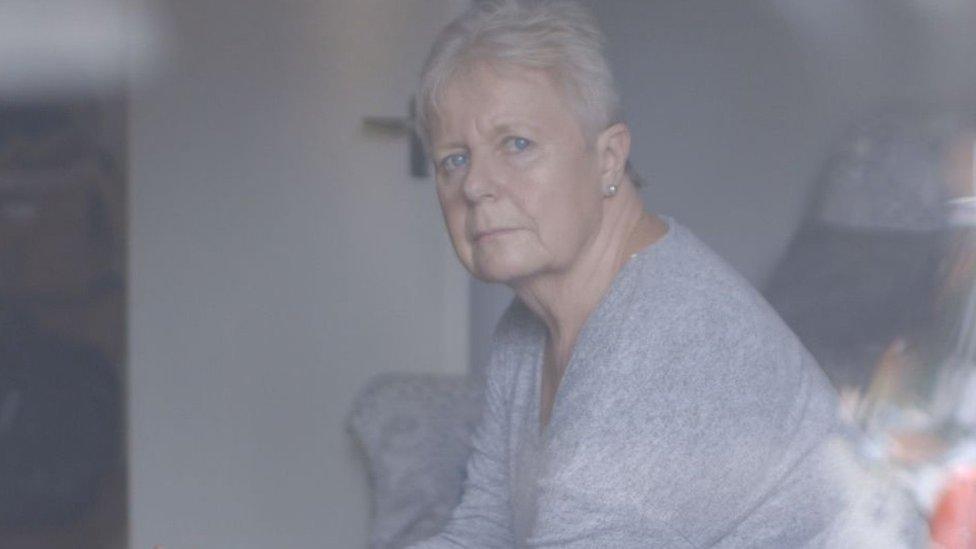
Brenda Pugh, 61, had to give up work because of arthritis
The cost to have the surgery privately would be about £10,000 per hip - and she says there's no way she can afford that.
Brenda is one of 62,000 patients who've been waiting more than 12 months to get joint replacement surgery.
New research conducted by charity Versus Arthritis and given exclusively to BBC Panorama reveals that half (54%) of people with arthritis who are currently waiting for surgery are facing an average cost of £1,739 a year to keep their pain at bay, through things like private physio appointments and over-the-counter painkillers.
Inevitably, GPs are the ones patients turn to for help managing their pain as they wait. One of them, Dr Leora Harverd, from a practice in north London, says she's overwhelmed by her current caseload.
Some of her patients are anxious about long delays for treatment, and says it's not unusual that people go private, but "it's not how it should be".
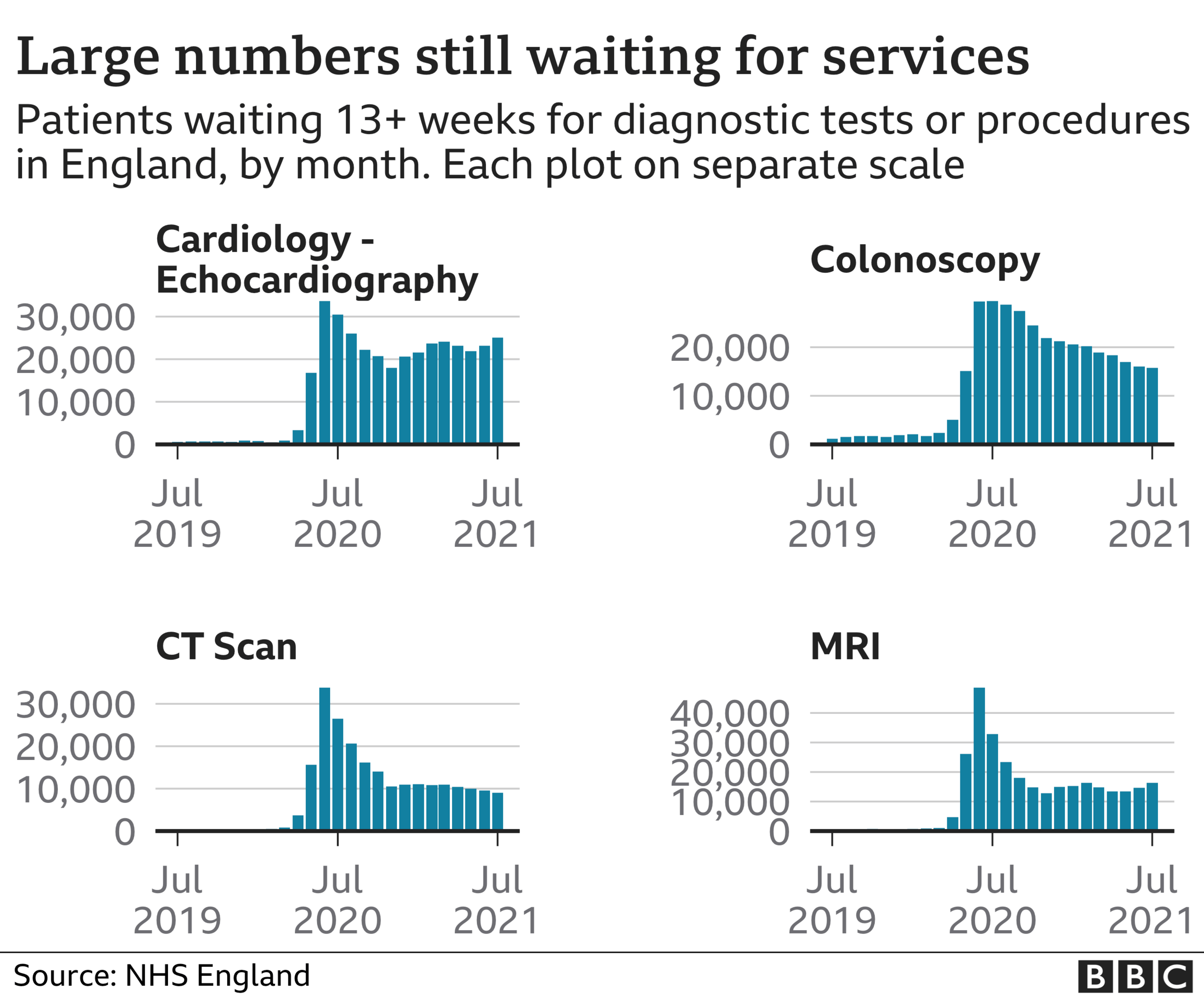

This month the government announced they would be investing £36bn in NHS and social care for all four home nations up to 2025.
Analysis of their plans by the Health Foundation shows that £10bn has been committed to address the backlog in England over the next three years.
Ms Charlesworth says it's a lot of money but won't necessarily be enough: 'If we want the waiting list to come down by the next election, we would need to spend at least £13bn; if we wanted to meet the target to treat people within 18 weeks, we need to be spending £17bn - and the government has committed £10bn."
But even the prime minister has admitted that "waiting lists will get worse before they get better".
NHS England said: "Caring for more than 450,000 seriously ill Covid patients has inevitably had a knock-on effect on non-urgent care.
"NHS staff have stepped up and made effective use of additional resources helping carry out millions more tests, checks, treatments and operations this summer compared to last."
BBC Panorama - NHS: Wait or Pay is on BBC One on Monday 27 September at 19:35 BST, and available afterwards on BBC iPlayer.
Additional reporting by Caroline Parkinson